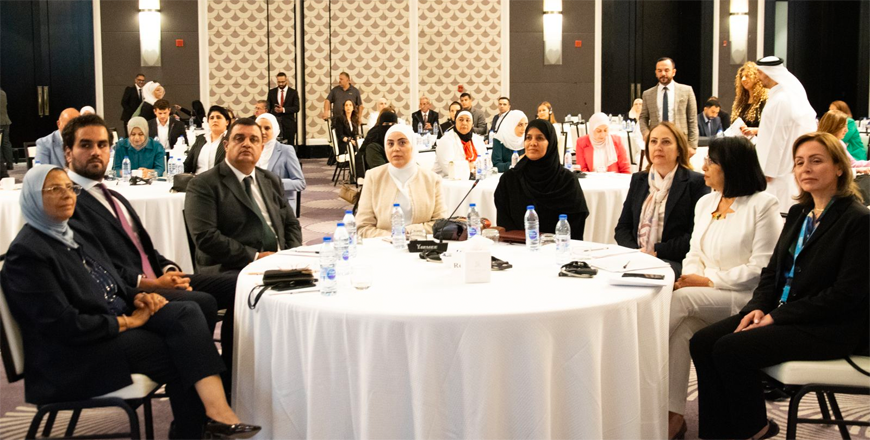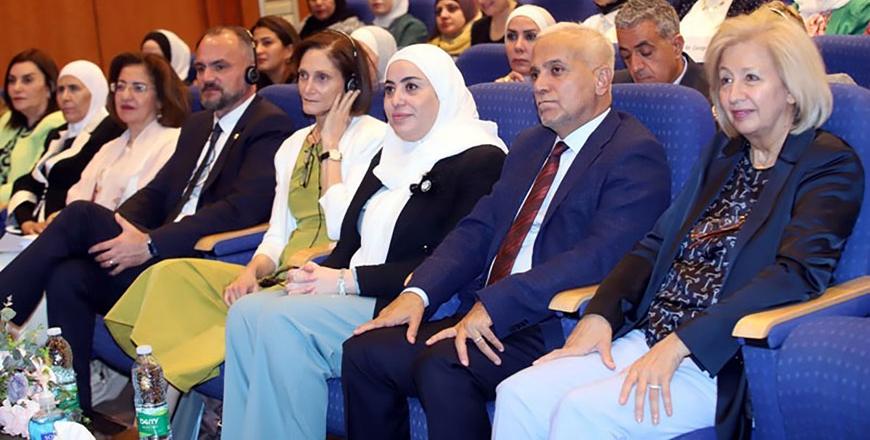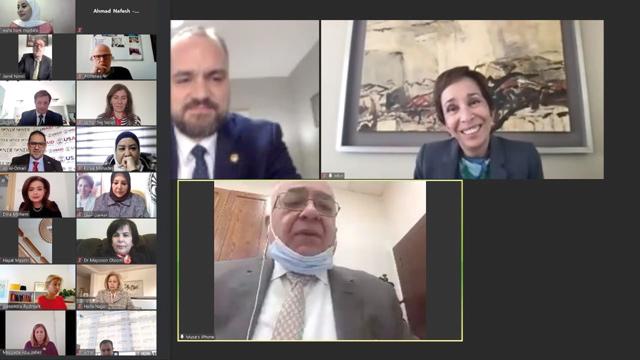You are here
Upcoming elections set to boost women's representation, says social development minister
By Rana Husseini - Aug 12,2024 - Last updated at Aug 12,2024

Minister of Social Development Wafa Bani Mustafa says on Monday that the upcoming parliamentary elections will witness an increase in women’s representation in the legislative body (Petra photo)
AMMAN — Minister of Social Development Wafa Bani Mustafa said on Monday that the upcoming parliamentary elections will witness an increase in women’s representation in the legislative body.
“Based on the current structure of elections that includes a women’s quota, political parties’ lists and general and local lists, we will surely witness more women’s presence,” Bani Mustafa said.
The minister, who was deputising for her HRH Princess Basma bint Talal, was speaking during the one-day forum entitled “Investing in Women’s Participation in Political Life,” that was held at the St. Regis Hotel in Amman.
The 2020 parliamentary elections resulted in 15 women winning seats only through designated seats that were allocated by the women’s quota that was introduced for the first time in 2003.
In 2022, the Senate and Lower House passed amendments to the Political Parties Law, which require political parties to increase the proportion of women and youth to at least 20 per cent within three years after their foundation.
There should be no less than 1,000 founding members of political parties, and at least 10 per cent should be women and young people between 18 and 35 years old, according to the new law.
The amended Elections Law is in line with the leadership’s vision to increase women's, youth’s and people with disabilities’ involvement in the development of political life, Bani Mustafa said.
“The increase in women’s number in the Parliament will surely be an added value for the society since they will mainly focus on social, health and educational reforms,” Bani Mustafa, who is also the chairperson of the Inter-Ministerial Committee on Women's Empowerment (IMCWE), told the gathering.
Bani Mustafa also announced the launch of the Second Guide to Combat Violence Against Women in Public Life.
The guide includes a definition of political violence, its characteristics, forms, perpetrators, and ways for female politicians to deal with forms of violence, Bani Mustafa explained.
The event was organised by the IMCWE in collaboration with the National Democratic Institute (NDI), the Coalition of Women Parliamentarians from Arab Countries to Combat Violence against Women (CWPACVW) and UN Women and supported by USAID and the EU delegation in Jordan.
Also addressing the gathering was Speaker of the Qatari Shura Council and CWPACVW member Hamda Al Sulaiti praised the efforts and accomplishments of Jordanian women ‘despite the challenges they faced along with Arab women in the region”.
“The forum today brings together women from the Arab region who will discuss means of taking advantage of women’s important participation in political life,” Al Sulaiti said.
Also addressing the gathering was Assistant to the UN Women representative Bushra Abu Shahout that violence against women candidates and politicians is disturbing.
“The absence of preventive measures and remedies underscores the need to take action and accelerate policy development to address the causes of all forms of violence against women in public and political life,” Abu Shahout stressed.
Meanwhile, NDI Programmes Director Ali Omari pointed out that the guide that was launched on Monday was the product of dozens of sessions with experts during which the concept of political violence against women, the challenges, and the parties targeted by violence were discussed.
“The guide in its current form, four years after the issuance of the first guide, is an example of the Jordanian insistence, government, people, and political entity, on supporting women through the continuation of these efforts,” Omari said.
Related Articles
AMMAN — With the aim of enhancing women’s civic participation, the Women’s Political Participation School (WPPS) was launched on Sunday in A
AMMAN — HRH Princess Basma on Tuesday said that fear of political violence is one of the biggest factors that often discourages women from a
AMMAN — Women leaders have praised a recent decision by the Inter-Ministerial Committee for Women’s Empowerment (IMCWE) to adopt the N


















